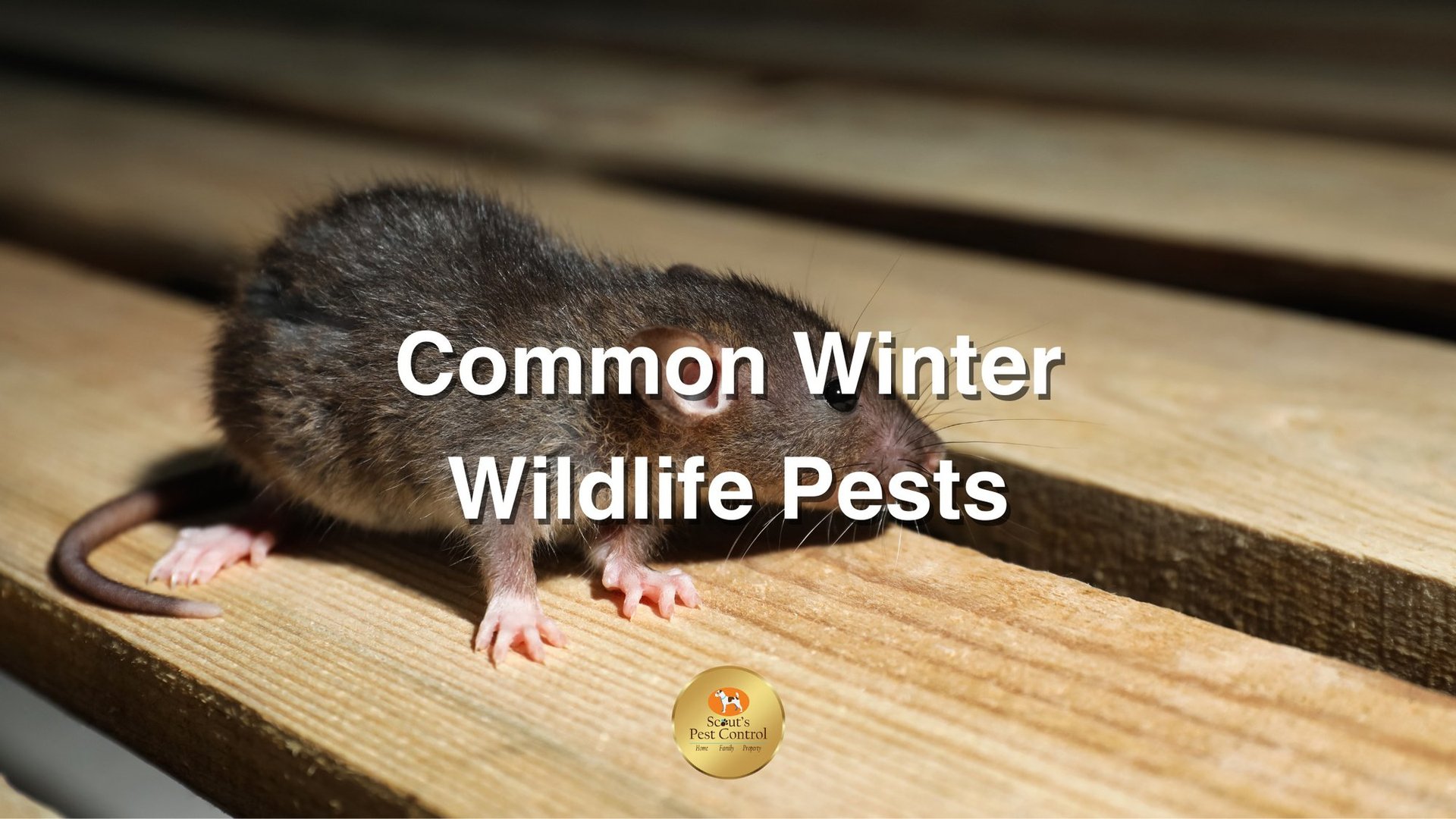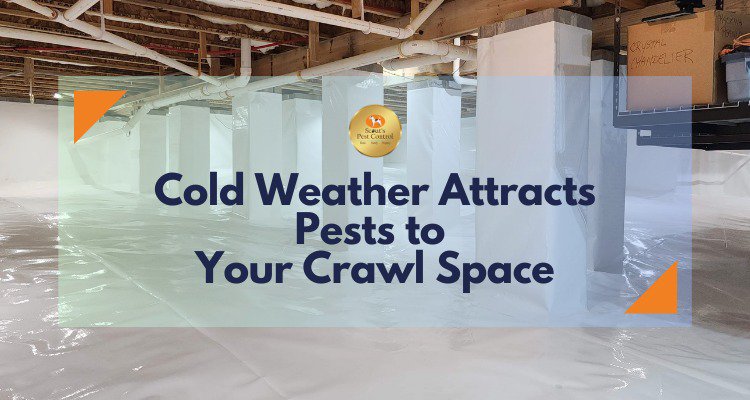Winter is often associated with family gatherings and holidays. While you enjoy this time of year, the presence of bothersome pests in your home is the last thing you want to deal with. This is the time when your local small wildlife pests can wreak havoc in your home and spoil your holiday fun. While some pests hibernate in the winter, many don’t. Your warm, cozy house is exactly what they need to pull through the cold and seek food sources.
Homeowners in South Carolina and throughout the United States are strongly advised by the “National Pest Management Association” to adopt preventive measures against winter wildlife pests such as rats, raccoons, and bats.
So, which pests you should look out for at home during winter? And how to prevent a pest infestation?
Let’s look at eight (8) common winter wildlife pests and effective prevention methods.
6 Most Common Winter Wildlife Pests You Should Watch Out for
Listed below are the eight common wildlife pests you may encounter in your home during the winter season:
Squirrels

Squirrels are a year-round nuisance. They don’t hibernate during winter and remain quite active. When looking for warmth, they frequently seek refuge in attic spaces, utilizing your attic as a hiding place for their winter food supply.
This can result in extensive damage to your wood, insulation, and electrical wiring.
House Mice

House mice are the most common rodents in America. According to one report, mice and other rodents invade an estimated 21 million homes in the US every winter. They can get in through the smallest of holes, and therefore you need to make sure you exclude these pests from your home.
They typically nest in dark, secluded places like basements and attics. Beware of this little creature with the power to cause significant damage to your property. It has the ability to chew through drywall and wires, which could result in dangerous electrical fires.
House mice can also contaminate food and even spread diseases, such as tapeworms and Salmonella. In addition to health risks, their constant gnawing can cause damage to property, including electrical wiring and insulation. It’s important to address a mouse infestation promptly to prevent further issues and maintain a safe living environment.
Norway Rats

Norway rats nest in debris piles, basements, and other undisturbed areas. They are notorious for gnawing through various materials to obtain food and water, including plastic and lead pipes.
Moreover, these rates are the carriers of diseases like rat-bite fever, cowpox virus, and jaundice. There have even been reports of the Plague in recent years. It is therefore imperative to deal with a rat infestation rapidly before they spread. A rat population can spread very quickly.
Skunks

Skunks occupy the same places in winter as summer, often burrowing under patios, decks, and stoops. Skunks don’t hibernate. However, they reduce their heart rates and body temperatures during winter to conserve energy and be less active.
They can live without water and food for days, even a week, but venture out periodically for sustenance. During winter, they form larger communities for warmth.
Be careful if you find a skunk in your home. They can be dangerous if they feel threatened. They also spray a putrid liquid that can temporarily blind you and might carry rabies.
Bats

Believe it or not, there are 51 species of bats in America. South Carolina hosts 14 different bat species. Bats are primarily active in summer and hibernate in winter. Unfortunately, they often choose to hibernate in attics.
They roost in belfries, attics, loose boards, and behind shutters, often carrying diseases like rabies.
Raccoons

Raccoons don’t hibernate but seek dens in dark, warm places like ground burrows, brush piles, hollow trees, chimneys, or attics.
They can cause property damage and may carry roundworms and rabies.
How to Prevent Winter Wildlife Pest Infestation?
Now that you know about common wildlife pests, let’s learn how to prevent them from taking shelter in your home. Spotting pests in your home can be tricky since they’re good at staying hidden. If you want your place pest-free this winter season, follow these steps to the T:
- Remove Moisture Sources: Fix any dripping pipes or areas where water collects, like crawl spaces. This discourages pests. Look for places where moisture lingers, including flower pots and pet dishes, and find ways to eliminate them.
- Seal Entry Points: Pests get inside indoor spaces through small holes. If you have trapped pests, seal any entry points after eliminating them. This prevents more pests from coming in.
- Declutter & Clean: Pests love hiding in clutter, so keep your spaces tidy. That pile of junk in the garage or even a woodpile outdoors can be an open invitation for pests.
- Maintain A Clean Kitchen: A clean kitchen is key. Even a single crumb can attract all sorts of pests. Don’t let your kitchen become a feast for these unwanted guests.
- Consider Professional Help: If you’re unsure or dealing with a persistent issue, don’t hesitate to call a pest control professional. They have repellents to use in areas vulnerable to infestations.
Key Takeaway
Although some go into hibernation, pests like raccoons, mice, and bats remain active and seek shelter indoors. If left unnoticed and untreated, they can grow in number and cause serious damage to your property and health.
To prevent pest infestations and keep your home and loved ones safe, follow the prevention tips we have given.





